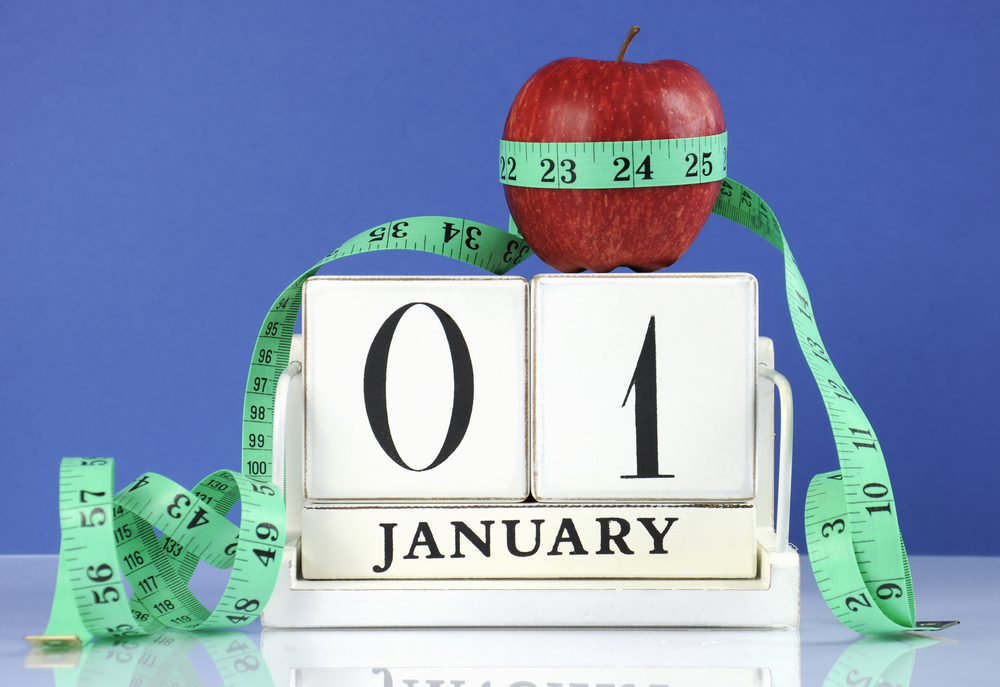The journey to weight loss can be difficult and emotion-provoking. If you feel like you are doing everything correctly and not seeing results, it can be very frustrating. You may feel angry and ask yourself why you are not losing weight.
If you eat a lot of unhealthy foods like desserts, alcohol, and soft drinks, and your portions are large, you know why you are gaining weight.
Even if you are doing everything right, such as eating lots of fruits and vegetables and exercising, you may still be gaining weight if there are underlying reasons.
There are several reasons why dieting might not be effective, including health conditions, menopause, stress, lack of sleep, and certain medications.
The following are some of the main behavioral reasons that may be impeding your weight loss goals, as well as how to overcome them.
1. Sleep Deprivation
Diet pills and energy drinks may contain high levels of caffeine, which can lead to sleep deprivation.
Lack of deep sleep has been shown to cause stress in the body, which in turn leads to increased fat storage.
If you’re having trouble sleeping, you might be snacking more late at night. This can lead to weight gain and other problems associated with stress. Although some people believe that eating helps them fall back asleep, it actually just increases the number of calories they consume in a day.
If you are experiencing fatigue, low energy levels, and nodding off easily, you may be sleep deprived. Additionally, you may be very irritable and difficult. If you are not losing weight, this may also cause more stress to pile up.
You should aim to get eight hours of sleep every night. If you can’t sleep, don’t get a snack and try not to take medication to make you sleep.
Try meditation techniques instead of diet pills, and do not exercise at least two hours before bedtime.
2. Stress Causes Weight Gain
The more you do, the more you need to achieve. Stress can help motivate you and help you cope at times, but it can also affect your moods and emotions.
If you’re experiencing stress from managing multiple responsibilities, struggling with money, or having difficulty in your relationships, you can attribute it to a biochemical reaction.
When you are under stress, your body’s natural reaction is to store fuel in the form of fat. This slows down your metabolism and produces stress hormones like cortisol and leptin. These hormones cause fats to build up in your abdominal area.
If you are stressed, you will not be able to lose weight, no matter how much you diet. Stress often causes people to eat comfort foods that are high in cholesterol and calories.
People who are stressed often eat high-carb foods in order to increase their levels of serotonin, a hormone which has a calming effect. Of course, they don’t do this consciously, thinking “I need to increase my serotonin levels”; they just do it because it feels good.
3. Medications
There are many prescription drugs that cause weight gain, including those used to treat depression, seizures, migraines, blood pressure, and diabetes.
You could potentially gain up to 10 pounds in a month if you are taking steroids, hormone replacement drugs, or oral contraceptives.
Medications can cause you to feel hungrier and also change the way fat is stored in your body. When insulin levels change, more weight is gained.
The weight gain caused by antidepressants may not be due to the medication itself, but rather to the fact that the medication helps improve mood, leading to increased appetite and consequent weight gain. Additionally, some antidepressants can cause fluid retention, which also leads to weight gain.
I’m glad that this kind of weight gain can be remedied quickly.
You should not stop taking your medication just because you have gained weight. You should speak to your doctor to see if your prescription dosages need to be changed. You should also change your diet habits and become more active.
4. Weight Gain and Medical Conditions
If you have hypothyroidism, you will definitely gain weight, and no amount of dieting will help you lose weight.
If you hypothyroidism, you may have a reduced appetite, but you will still likely gain weight. This is because the hormone that controls your metabolism is deficient.
If you are feeling lethargic, have excessive swelling, a hoarse voice, and cannot tolerate cold temperatures, you may have a thyroid problem and should see a doctor.
Tests to determine hypothyroidism are easy and there is medication that can regulate your levels.
Cushing’s Syndrome, a disorder caused by excess production of cortisol, will result in weight gain. Just as with other medical conditions, dieting will not stop the weight gain if you are producing too much cortisol.
5. Menopause and Weight Gain
Women who reach menopause are generally in early to late middle age and are generally less physically energetic than when they were much younger.
As you get older, your metabolism slows down naturally and hormonal changes make you feel hungry, have trouble sleeping, and feel depressed.
There are many factors that contribute to weight gain, such as depression, low metabolism, and hormonal changes. No diet plan can combat all of these factors.
The level of estrogen in your body affects how much fat is stored in your tummy area. When you have less estrogen, you are more likely to have a larger waistline.
You should not try fad diets to lose weight since they are not healthy.
6. You’re Way Overestimating Your Muscle Weight
If you’ve ever stepped on a scale and thought that you’re still losing fat, but you’re just gaining muscle because you’re working out really hard, raise your hand.
Failing to change your weight-loss strategy because you want to build muscle could prevent you from losing fat.
Most of us have attempted to lose weight by reducing the amount of water we drink, but this is ineffective because muscle tissue is similar in density to water.
This means that if you are not seeing a change in your muscle mass, you should focus on other areas of your fitness routine.
You may want to consider making some changes to your diet in order to create a caloric deficit and help you lose weight. Another option is to try HIIT workouts to burn fat and increase your heart rate.
7. You’re Eating Less, but Still Picking Unhealthy Foods
Many people ask us “how many calories do I need each day”, and the BMR calculator is a great place to start. If you eat less than the calories you burn, you can lose 10% of your weight just through dieting.
If you want to lose more weight, you need to focus on eating healthier foods rather than eating less food.
Different foods digest at different rates in our bodies. Some are slower, some are quicker. She says that sugary foods tend to digest quickly, which leaves us feeling hungry sooner. In contrast, foods that are rich in fiber digest more slowly.
Eating foods that are high in fiber, such as fruits, vegetables, whole grains, and legumes, can help you feel full and may assist with weight loss.
If you are frequently ordering in delivery for dinner, making the switch to healthier lunches on a consistent basis will help you to continue losing weight.
If you improve the quality of the calories you eat by consuming healthier foods that are more filling, you will naturally eat less and continue to lose weight past the 10 percent mark.
Even if you eat fewer calories than you burn, you should still pay attention to the types of calories you’re eating, Jessica Cording, RD, CDN, author of The Little Book of Game-Changers, says. I really encourage people to eat foods that are nutrient dense and will provide lasting energy throughout the day as opposed to quick fixes from processed foods.
8. You’re Not Keeping Track of What You’re Eating
Judging ourselves favorably is something that comes naturally to humans. We tend to downplay our bad decisions and exaggerate our good ones.
If you eat a salad on Tuesday and then two bowls of Ben & Jerry’s for dessert, you’re not likely to lose weight.
When you track your caloric intake it is easier to stay accountable and not underestimate how much you are eating.
9. You’re Not Eating Enough Plant-Based Protein
Protein is generally beneficial in that it makes you feel fuller (thus reducing total food intake) and also helps to build muscle, skin, and healthy bones.
Animal protein is not the best kind of protein to consume if you are trying to lose weight. Too much animal protein can lead to weight gain and other health problems like diabetes.
Protein contains the essential amino acids your body needs. It is critical for your health that you are not deficient in amino acids. Animal protein is considered a complete protein, plant-based protein is not.
Unless you overeat there is no evidence to suggest that plant-based proteins like nuts will make you gain weight.
10. You’re Not Looking At The Big Picture
If you’ve been on a diet for three months and have only lost eight pounds, you might be feeling frustrated.
Think about whether your goal is to lose weight as quickly as possible, or to lose weight healthily so that you can keep it off permanently.
Weight loss should not be looked at in the short term, as it is a long-term problem. There will be daily highs and lows, similar to the stock market.
If you’re focusing on weight loss, think about how your weight has changed over time, and how you want to feel in the future.
11. You’re Not Eating Whole Foods
If you’re not interested in diets that focus on eating whole, clean foods, you might want to reconsider.
Nutrition experts have long known that diets full of whole foods, such as fruits, vegetables, grains, and protein, are associated with better weight-loss results than those that are packed with processed foods (such as cereal, crackers, and prepackaged meals).
A study done in 2019 showed that when people eat diets that have the same amount of nutrients, the group who ate processed foods gained more weight than the group who ate whole foods.
It is important to make it as easy as possible to incorporate more whole foods into your diet.
To eat healthily, you should have healthy foods like frozen produce, oats, whole-grain bread, eggs, frozen fish, and leafy greens in your house. Hard boiled eggs are a great healthy snack and consider adding some spinach to soup or omelets.
If you want to make sure you’re eating more vegetables, start every dinner with a mixed green salad. To get more fruit into your diet, have one serving of fruit with lunch as your dessert and adding another serving at dinner.
READ MORE: The Complete Pro-Metabolic Diet









